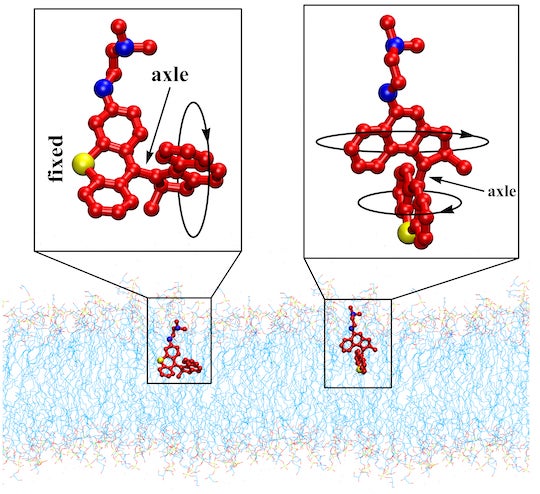Tiny light-powered drills could be our secret weapon against superbugs
Date: 10.6.2022
Bacteria adapt quickly to changes in their environment, and unfortunately that includes antibiotics. Some of the bugs will naturally have mutations that allow them to survive the onslaught, then pass those genes on to future generations. Over time, that resistance builds up to the point that most of our once-powerful antibiotics are failing, which could eventually lead to a “new dark age of medicine” where basic infections become lethal again.
 But while bacteria can develop resistance to chemical attacks, they can’t defend against physical attacks. As such, scientists are investigating killing superbugs using jagged surfaces, black phosphorus coatings, liquid-metal shredders, micro-traps, “poisoned arrows” and molecular drills.
But while bacteria can develop resistance to chemical attacks, they can’t defend against physical attacks. As such, scientists are investigating killing superbugs using jagged surfaces, black phosphorus coatings, liquid-metal shredders, micro-traps, “poisoned arrows” and molecular drills.
It’s that last one that the Rice team has now built on. These molecules are designed to have moving rotors that, when activated by light, spin between two and three million times per second, making them effective drills. When that motion is directed onto bacteria, it can pierce their outer membranes and spill their insides, either killing the cell outright or providing an opening for antibiotics to get in and finish the job.
Now the Rice researchers have made a few tweaks to the drills. Previous iterations were activated by ultraviolet light, but the new ones now run on blue light, which is harmless to human cells and already has some antibacterial properties of its own. The team also made some modifications that guide the drills towards bacteria better, by homing in on the negative charge of their membrane.























